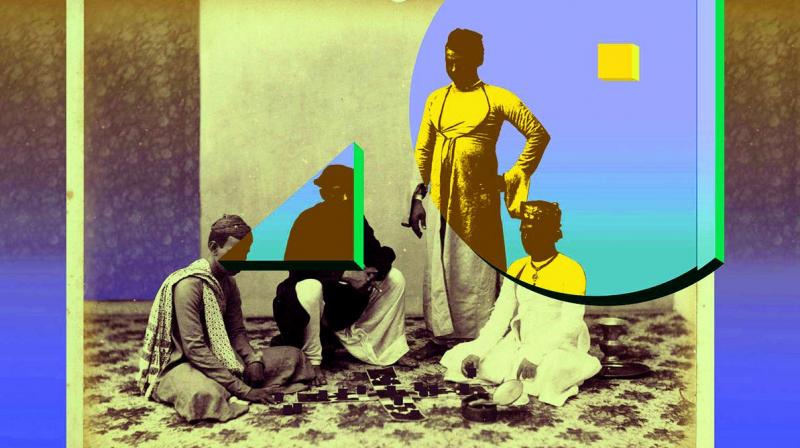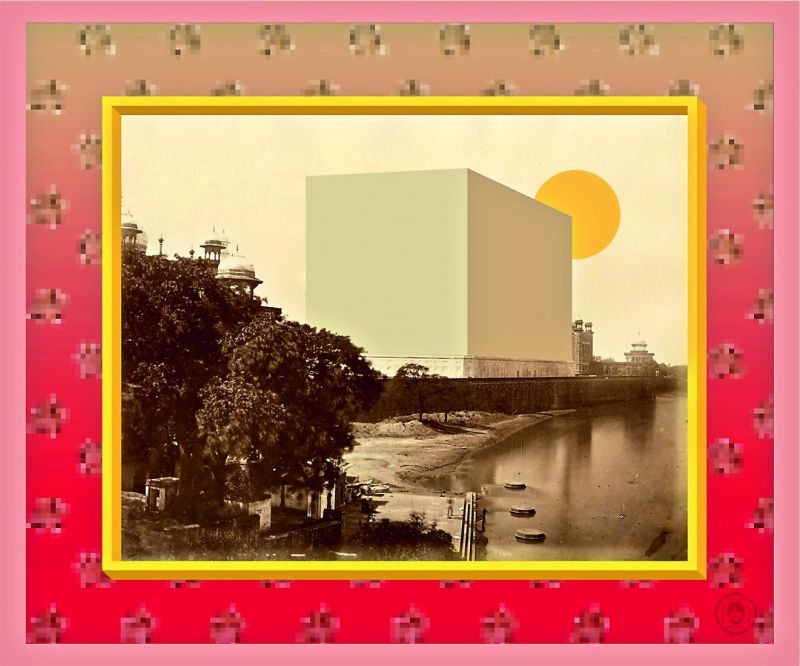Old world meets new in his work
The idea to make changes on photographs was solely inspired by my observation of news on television.;

On Nandan Ghiya’s work, old world meets the new world and blends seamlessly. It seems like an oxymoron that old, almost sepia images get a pixelated touch, but that is what his work is all about.
His solo show titled, Atom to Pixel on view at the State Art Gallery is testimony to his offline blending with the online world. The solo show brings forth a series of his works based on the photographs from Kalakriti Archives. Nandan Ghiya’s work on display resonates with the conceptual dimension of this year’s theme for the festival on ‘urban frames, visual practices and transitions’.

Organised by Kalakriti India and the Krishnakriti Foundation(in memory of Krishnachandra B. Lahoti) the festival is spread out at varied venues in the city. Every year the festival brings forth some of the most prominent art practices from India and abroad for the local viewers to get mesmerised by.
Nandan reworks on the visual relics from a perspective which is very much modern and technologically advanced. From atom to pixel perhaps metaphorically manifests the gradual transition that has taken place in terms of physical, cultural and metaphysical levels. He thus makes changes in the original picture with geometrical sections infused with multiple pixels of varied sizes and patterns. These delve into the intricacies of layers that exist within people, households and societies. His digitally enhanced works explore the difference and connection between private and public life.
He makes photographs mean something more than usual “Technology remains a very important part of my diction. The pixels have taken over atoms and we all click pictures and sometimes we don’t even have time to look at them again. The photographs with which I worked were precious and were clicked on very important occasions and people used to get dressed up specially to be caught by the camera. The gradual shift is remarkable and the trajectory multiple-layered. The visual entity of these pictures is a gateway to the innumerable abstract and unseen aspects of life that exists within and around the portrayed people,” he says.
A self-taught artist, Nandan started his creative journey by accomplishing his studies in fashion designing from NIFT, Delhi. “I always wanted to be a professional artist. Even when I was studying at NIFT, I used to paint regularly and also had a solo show.”
When asked about the inspiration that initiated his decade-old passion of working with old photographs he says, “With photographs I have a very deep connection as my grandfather used to run a very famous photo studio in Jaipur. Our house used to be decked up with beautiful vintage photographs and I naturally developed an affinity for them. The idea to make changes on them was solely inspired by my observation of news on television. When they wanted to not disclose the face of a person they blocked it with multiple pixels, this aspect intrigued me immensely and opened up a brand new perspective for my creative journey,” he concludes.
Meanwhile
And it kicks off...
The 16th edition of the Krishnakriti Art and Culture Festival to celebrate and promote the city’s rich heritage began at the Kalakriti Art Gallery on Friday. The theme of the 2019 festival, ‘Heritage and Urban Cultures’, aims to explore ideas around cosmopolitanism, pluralism, and cultural exchange within historic cities through contemporary photography and visual arts. Many eminent artists were spotted at the inauguration. “This year our entire focus is on our collection of rare vintage photos,” says Prshant Lahoti, managing trustee of Krishnakriti Foundation.

